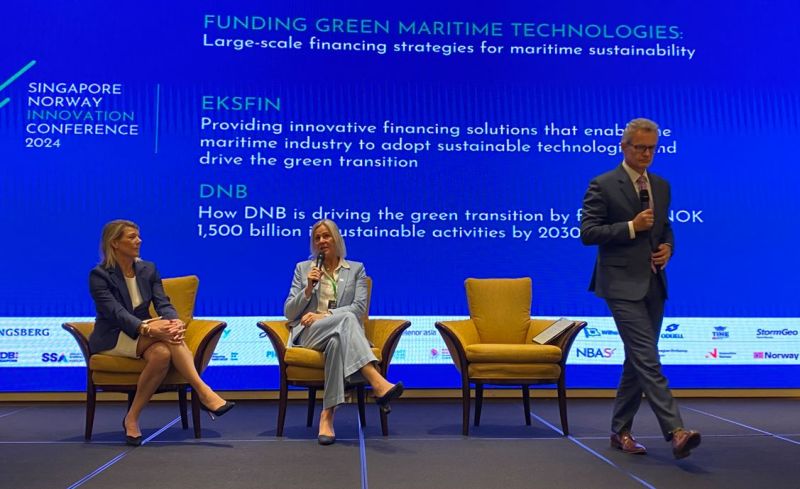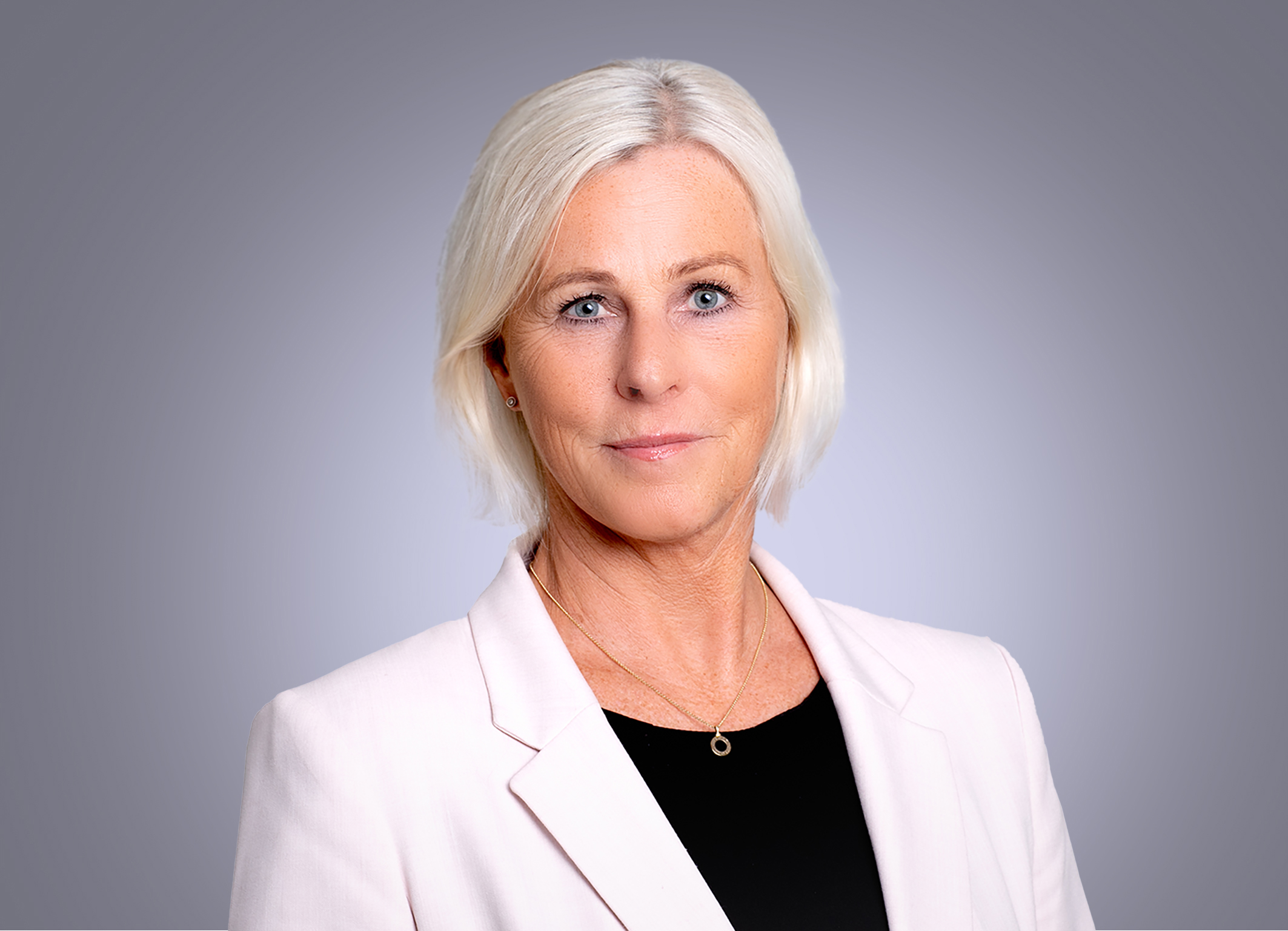Tone Lunde Bakker, CEO of Eksfin, was one of the key contributors at the Singapore Norway Innovation Conference 2024. The Norwegian Business Association Singapore spoke with her ahead of the conference to gain insights into how Eksfin is supporting sustainable initiatives in the maritime sector, the key innovations she sees as drivers for the green transition, and how Eksfin collaborates with industry to bring future solutions to life.
Supports the adoption of sustainable technologies
How does Eksfin’s financing model support the adoption of sustainable technologies in the maritime industry?
Eksfin – Export Finance Norway’s core mission is to increase exports by offering financing. Eksfin contributes to the green transition by providing state loans and guarantees to Norwegian exporters and foreign buyers of Norwegian export.
With risk limits of 17 bn EUR, Eksfin is a powerful tool promoting Norwegian exports.
Eksfin finances an increasing number of vessels featuring alternative fuels or new technologies that reduce harmful emissions for shipowners and shipyards. Eksfin can also finance deliveries from equipment sub-suppliers.
Eksfin has participated in financings for more than 40 eco-friendly vessels and will continue to pursue projects with a strong environmental profile, reflecting the industry trend towards more sustainable operations.
In the past few years Norwegian shipping companies have established themselves as reliable players in the highly competitive global offshore wind industry. Delivering service ships to the international offshore wind industry is a strategic priority for the Norwegian maritime industry, and Eksfin has committed finance to around 30 offshore wind vessels in the past few years.

Tone Lunde Bakker in discussion with Kjerstin Braathen, CEO of DNB, at the Singapore Norway Innovation Conference.
Key hub and entry point for business in Southeast Asia
Singapore is a key hub and entry point for business in Southeast Asia—what opportunities does Eksfin see in the region for financing green projects?
Singapore is a leading maritime hub and an important market for Norwegian shipyards, maritime service providers and shipowners.
Currently, Norwegian shipyards and manufacturers of equipment are particularly interested in pursuing the business potential for export to Singapore. Sale of fast ferries with fully electric propulsion systems manufactured in Norway is one of the initiatives related to decarbonising of shipping.
By choosing a Norwegian supplier, international buyers can rely on receiving financing from Eksfin in support of their purchase. We are solution-oriented and flexible and aim to increase our exposure to the green maritime industry.
Collaboration with other financial institutions
How does Eksfin collaborate with other financial institutions and stakeholders to accelerate the transition to a more sustainable maritime sector?
As a rule, Eksfin always cofinances together with banks and provides commercial terms. Often our role is to provide risk sharing through state backed AAA-rated guarantees, enabling the bank to provide higher loans.
Eksfin offers cost efficient financing to green maritime projects and we prioritise climate friendly solutions.
Challenges and opportunities
What are the biggest challenges and opportunities facing the maritime industry in terms of financing green technologies, and how is Eksfin addressing these?
Maritime decarbonisation is one of the greatest challenges of our time.
Production of green fuels is underway but large-scale supply remains elusive and today’s reality is that 93% of the world fleet is still running on conventional fossil fuels. (DNV Maritime Forecast to 2050). However, ingenuity and innovation can carry the industry forward.
At this stage we believe that in short sea transport it is important to electrify ships through battery solutions. Eksfin finances a large number of vessels with green technologies, including battery-driven ferries and offshore wind service ships.
A main challenge for the maritime industry is the availability and cost of low carbon fuels. Going forward, shipping should work with fuel and carbon capture developers to secure carbon-neutral fuel supply, and with key ports to develop the carbon capture storage capacity and infrastructure. Onboard carbon capture is expected to emerge as one important technology after 2030 offering cost effective decarbonisation.
The Norwegian Business Association Singapore (NBAS) provides a forum and meeting place for Norwegian companies, their executives, and employees in Singapore to network, discuss ideas, exchange experience, and expand their knowledge base about business-related issues.


Senior Adviser Communications and Marketing
Read more about:
